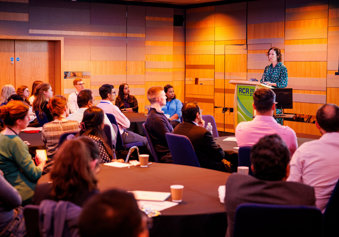Use of copyrighted material
The content of this document is for guidance only and does not purport to be a statement of the current law. Readers should not rely on this either as an accurate or complete representation of the law.
In most instances you will not be able to use copyright protected material in your resource. Using images, illustrations or table data sourced from the internet or a print publication is not acceptable without prior permission from the intellectual property owner.
Examples would include cartoon images, news agency photographs (of famous people), specialist medical illustrations (from books or image libraries) and table data from online journals requiring subscription.
Several exceptions allow copyright works to be used for educational purposes. Most relevant are:
-
Where the copyright has expired
-
Where you have created your own images or taken your own photographs.
-
Where you have obtained permission to use them from the copyright holder.
-
When we own the copyright of the material e.g learning and teaching resources produced by the college.
-
Where material is licensed under Creative Commons (CC). Providing you acknowledge the source and check the terms of the license; you may be able to show these materials in your resource.
-
The copying of works in any medium if the use is solely to illustrate a point or for criticism or review, it is not done for commercial purposes, it is accompanied by a sufficient acknowledgement, and the use is fair dealing. This means minor uses, such as displaying a few lines of a paper, are permitted, but uses which would undermine sales of the article are not. Only the amount of work needed to illustrate the point may be taken. (https://www.gov.uk/guidance/exceptions-to-copyright#history and https://www.copyrightservice.co.uk/copyright/p27_work_of_others)
You can use photographic or radiological images of patients created in your place of work if they are fully anonymised, and patients are not identifiable from the images, or any data files attached. This means not only removing their name and date of birth from the image, but also any identifiers such as NHS/ hospital number, hospital name, doctors name, etc. from any metadata file attached.
Although it may be your work, you may have already signed away the copyright to this if you have had the research published by a journal. Any publishing agreement must be checked to see how the work can now be used. In some cases, you can use the pre-print version of the article, including the illustrations. Otherwise, it may be possible to request permission for extracts of journal articles to be used.
No - we are not eligible for an educational recording agency (ERA) license, which would permit the use of (and copying of) TV and radio broadcasts for educational purposes e.g. BBC iPlayer.
Commercially purchased videos and DVDs can be shown in lectures for educational purposes, but significant use of the content should not be recorded unless you have permission from the copyright holder.
Commercially bought CDs can be used in teaching but should not be included in a lecture recording.
Podcasts that you download from the web normally have an implied licence that enables you to copy and use them, as downloading them is a means of copying, so you should be alright to use them, unless they have an accompanying statement that restricts their use.
The copyright in videos from sites such as YouTube or iTunes U resides with the creator of the video, so you would need to obtain permission directly from them. Some material may be available for educational use or under a CC license. While it may be possible to show this material for educational purposes and provide links to the material in e-learning resources, it may not be authorised to include them in a recording, depending on the type of license.
We are at risk of being subject to legal proceedings for infringing copyright, either within recorded lectures or by uploading materials to the website, e-learning hub, public folders or another website.
While it may be legal to use some materials within a lecture, it does not necessarily make it legal to include them within a recorded lecture or online event.
Please contact rcrlearning@rcr.ac.uk for advice if you have any concerns about material you wish to use in your resources – ideally before it has been developed. We reserve the right to remove any resources in the light of any proven copyright infringements.
See more on event guidance
For further information on our events and webinars, please refer to this guidance.
